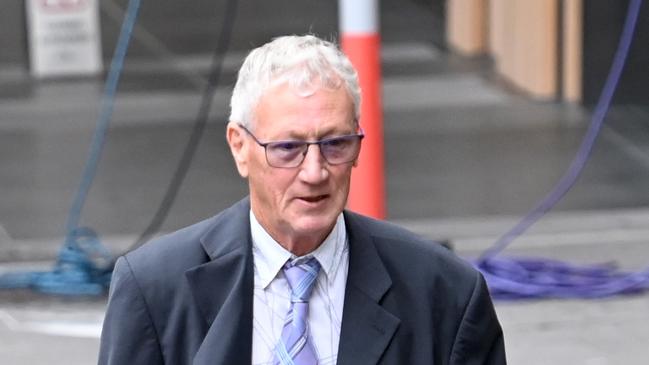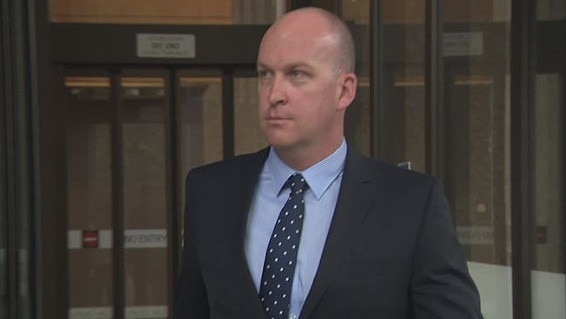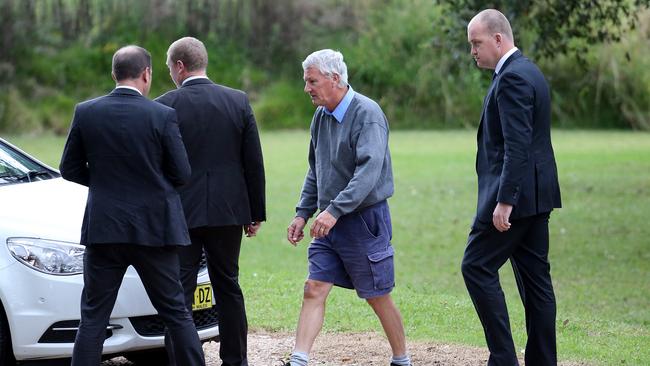‘Oversight’: William Tyrrell cop’s candid admission in court
A detective linked to the William Tyrrell case has told a court he never hid information about a former person of interest.
A detective linked to the William Tyrrell case has told a court he never hid information about historical child sex allegations a former person of interest has been cleared of.
Bill Spedding, 70, is taking on the state of NSW in the Supreme Court, claiming he was maliciously prosecuted and falsely imprisoned.

Detective Sam Brennan was in charge of the investigation that led to Mr Spedding being charged over allegations he sexually assaulted two girls in the 1980s.
Those charges were laid around the time Mr Spedding was identified as person of interest in the Tyrrell case because he repaired a washing machine at William’s home in Kendall on the NSW Central Coast three days before the three-year-old disappeared in 2014.
Mr Spedding has continuously denied the assault allegations that triggered a trial and were eventually thrown out.
No one has been charged over William’s disappearance.

Called to give evidence about his handling of the child sex assault case against Mr Spedding, Detective Brennan spent a second day giving evidence on Friday.
The court was told a key witness in the case, who cannot be identified for legal reasons, told police in 2016 that the allegations against Mr Speeding were false before he was charged.
Mr Spedding’s barrister Adrian Canceri said police were also aware of a previous court judgment that showed “compelling evidence that the allegations had been coaxed or tutored”.


It was not until Mr Spedding’s trial had begun in 2018, and after he had spent more than 50 days remanded in custody, that the key witness provided a formal statement to police after they initially gave up on attempts to get one.
“He (the witness) had proven very difficult … up and down … I made numerous attempts to try to obtain a statement from him. Sometimes he was amicable or pleasant to deal with and other times he was hostile,” Detective Brennan told the court.
“It was unusual frankly, it just went back and forth … how many times do you ask?”
The court was told a note about the witness’s contradictory evidence, which was favourable to Mr Spedding, was not initially disclosed to Mr Spedding’s legal representatives because of an “oversight”.
“In hindsight, yes, I agree,” Detective Brennan said when asked if he should have disclosed the note.
“It certainly wasn’t an attempt to hide anything.”

In a police fact sheet tendered in the Local Court after Mr Spedding was charged, Detective Brennan conceded he had not mentioned that one of Mr Speeding’s accusers had denied one of the assaults he was charged with.
Detective Brennan said he stood by the belief the case against Mr Spedding was strong and the accuser who denied the specific assault Mr Spedding was charged with had reported assaults “over a sustained period of time which was highly relevant to the matters”.
The other alleged assaults were investigated by Victoria Police and later dismissed, the court was told.
When asked about why journalists and camera crews were outside Mr Spedding’s home before the arrest, Detective Brennan said he was shocked by the media presence.
“I’ve never had any knowledge of the police being informed prior,” Detective Brennan said.
“It was certainly a surprise to me to see the media there … however, I presume it was because of the intense interest around Mr Spedding at the time.”
Detective Brennan said police were “perhaps taking advantage of a situation” when they discussed using Mr Spedding’s arrest as an opportunity to put pressure on him to provide more information about the Tyrrell case.
“The arrest was going to take place regardless,” Detective Brennan said.
The hearing continues.


